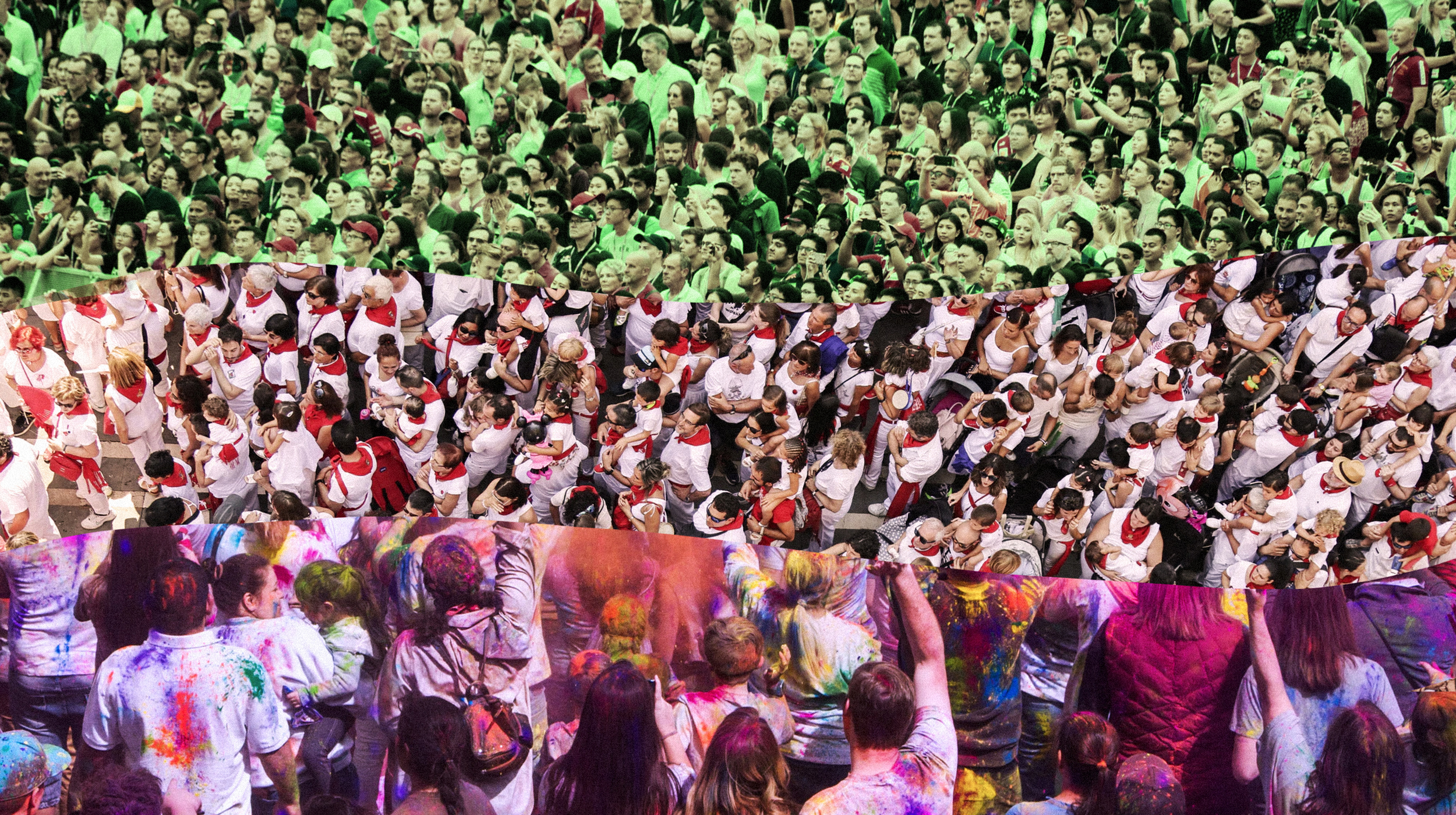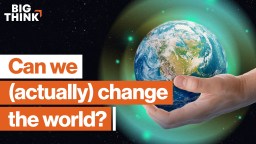Are you courageous enough to collaborate with your enemies?content.jwplatform.com
- Bishop Omar Jahwar has worked beside all kinds of unlikely allies, from Aryan Brotherhood gang leaders to former Speaker of the House Paul Ryan.
- What is an enemy? A true enemy is rare, says Bishop Omar. “Enemies come when there is true violation, not true rhetoric… sometimes you have to go beyond the rhetoric so you can see the real.”
- You cannot solve deep problems from the comfort of an echo chamber—it takes courage. The key to courageous collaborations is meeting your so-called enemy to ask: “What do we fiercely agree upon? And let’s work like hell to make it happen.”
The Charles Koch Foundation is committed to understanding what drives intolerance and the best ways to cure it. The foundation supports interdisciplinary research to overcome intolerance, new models for peaceful interactions, and experiments that can heal fractured communities. For more information, visit charleskochfoundation.org/courageous-collaborations. The opinions expressed in this video do not necessarily reflect the views of the Charles Koch Foundation, which encourages the expression of diverse viewpoints within a culture of civil discourse and mutual respect.
Why free speech is sacred—even when it’s dangerouscontent.jwplatform.com
- Suppression of free speech dooms democracy, says law professor Nadine Strossen. We should all be open to hearing dangerous and odious ideas rather than drive them underground.
- “[P]eople will often say to me, as somebody who is Jewish and the daughter of a Holocaust survivor who barely survived the Buchenwald Concentration Camp: How can I of all people defend the Nazis?” says Strossen. She also says, “And mark my words I would be equally distraught at having voices on the right silenced for a whole lot of reasons, one of which is the indivisibility of all rights.”
The Charles Koch Foundation is committed to understanding what drives intolerance and the best ways to cure it. The foundation supports interdisciplinary research to overcome intolerance, new models for peaceful interactions, and experiments that can heal fractured communities. For more information, visit charleskochfoundation.org/courageous-collaborations. The opinions expressed in this video do not necessarily reflect the views of the Charles Koch Foundation, which encourages the expression of diverse viewpoints within a culture of civil discourse and mutual respect.
Ideology drives us apart. Neuroscience can bring us back together.content.jwplatform.com
- How can we reach out to people on the other side of the divide? Get to know the other person as a human being before you get to know them as a set of tribal political beliefs, says Sarah Ruger. Don’t launch straight into the difficult topics—connect on a more basic level first.
- To bond, use icebreakers backed by neuroscience and psychology: Share a meal, watch some comedy, see awe-inspiring art, go on a tough hike together—sharing tribulation helps break down some of the mental barriers we have between us. Then, get down to talking, putting your humanity before your ideology.
The Charles Koch Foundation is committed to understanding what drives intolerance and the best ways to cure it. The foundation supports interdisciplinary research to overcome intolerance, new models for peaceful interactions, and experiments that can heal fractured communities. For more information, visit charleskochfoundation.org/courageous-collaborations
I worked in the prison system for 5 years. Here’s what it …content.jwplatform.com
- Most people who go to prison are not incorrigible criminals – just normal people who made mistakes.
- The prison system can become breeding ground for antisocial behaviors.
- Bishop Jahwar worked with prisoners to help them retain the core of who they were and “take masks off”.
The Charles Koch Foundation is committed to understanding what drives intolerance and the best ways to cure it. The foundation supports interdisciplinary research to overcome intolerance, new models for peaceful interactions, and experiments that can heal fractured communities. For more information, visit charleskochfoundation.org/courageous-collaborations. The opinions expressed in this video do not necessarily reflect the views of the Charles Koch Foundation, which encourages the expression of diverse viewpoints within a culture of civil discourse and mutual respect.
How the marketplace of ideas went roguecontent.jwplatform.com
- The marketplace of ideas is a better metaphor than it’s intended to be, notes Eli Pariser. As any good economist will tell you, the best product doesn’t always rise to the top.
- The institutional gatekeepers and experts who once kept checks and balances on the marketplace of ideas have been replaced by social media algorithms that reward emotion and outrage over expertise and truth.
- How can media institutions like Facebook make this right? By reevaluating the business model that serves advertisers instead of readers, and by clearly stating their values—even if that means losing some of those 2 billion users.
The Charles Koch Foundation is committed to understanding what drives intolerance and the best ways to cure it. The foundation supports interdisciplinary research to overcome intolerance, new models for peaceful interactions, and experiments that can heal fractured communities. For more information, visit charleskochfoundation.org/courageous-collaborations. The opinions expressed in this video do not necessarily reflect the views of the Charles Koch Foundation, which encourages the expression of diverse viewpoints within a culture of civil discourse and mutual respect.
Why you should tolerate intolerable ideascontent.jwplatform.com
How free speech deepens the quality of good ideas.

content.jwplatform.com
If you lost friends in the 2016 election, watch thiscontent.jwplatform.com
Algorithmic catastrophe: How news feeds reprogram your mind and habitscontent.jwplatform.com
The most powerful editors in the world? Algorithms.
How one black man convinced 200 KKK members to quit the Klan… …content.jwplatform.com






